Singers are discovering that learning online isn’t just a backup when local teachers aren’t available: it’s a fast, flexible, and fun way to grow. Online singing lessons let you learn singing from anywhere, rewatch material as often as you need, and connect with a global community of singers.
But there’s a catch: not all online options are equal. Some are structured, interactive, and designed for lasting transformation. Others leave you with scattered tips, no feedback, and no sense of progress. This guide will walk you through the options, so you can choose what actually helps your journey.
The limitations of traditional voice lessons
For generations, the model has been simple: you book a weekly slot with a voice teacher, you sing for 45–60 minutes, you go home and practice, and you return the following week. This format has helped countless singers, but it has serious flaws — flaws that explain why so many people give up on lessons before they ever reach their potential.
Technique overload
Most teachers start and end with technique. Lessons are filled with scales, breathing drills, posture corrections, vowel tweaks. While these things matter, they often crowd out the joy of singing. Students feel like they’re in a technical bootcamp instead of discovering their unique voice. Without joy, motivation drops — and progress slows to a crawl.
No clear roadmap
Every lesson, the teacher listens and reacts: “Your tongue is tight, let’s fix it. Your high note is flat, let’s work on it.” That’s valuable in the moment, but there’s no bigger picture. You’re putting out fires week by week, instead of following a structured path from beginner to confident singer. Without that roadmap, you never feel a sense of progress.
Getting lost between lessons
Even if you have a good teacher, the real challenge starts the moment you walk out of the studio. Suddenly you’re on your own, expected to practice for a week without guidance. You may repeat mistakes, get stuck on one issue, or skip practice entirely. By the time the next lesson rolls around, you’ve lost momentum — or worse, developed habits that need to be undone.
Isolation
Singing has always been communal. For most of human history, we sang in choirs, festivals, and gatherings. Yet modern lessons are often just one student and one teacher, in a small room. Without the energy of a group, many singers feel lonely, uninspired, or discouraged. They miss out on the “masterclass effect” — learning from peers’ struggles and breakthroughs.
The hidden cost of “cheap” lessons
Many singers try to save money by booking fewer lessons, or finding the cheapest teacher available. The result? Slow progress, shaky confidence, and the frustration of feeling stuck. In the long run, you pay more — not less — because years of patchwork lessons don’t add up to transformation.
Read more in my pros and cons of online lessons article, below.
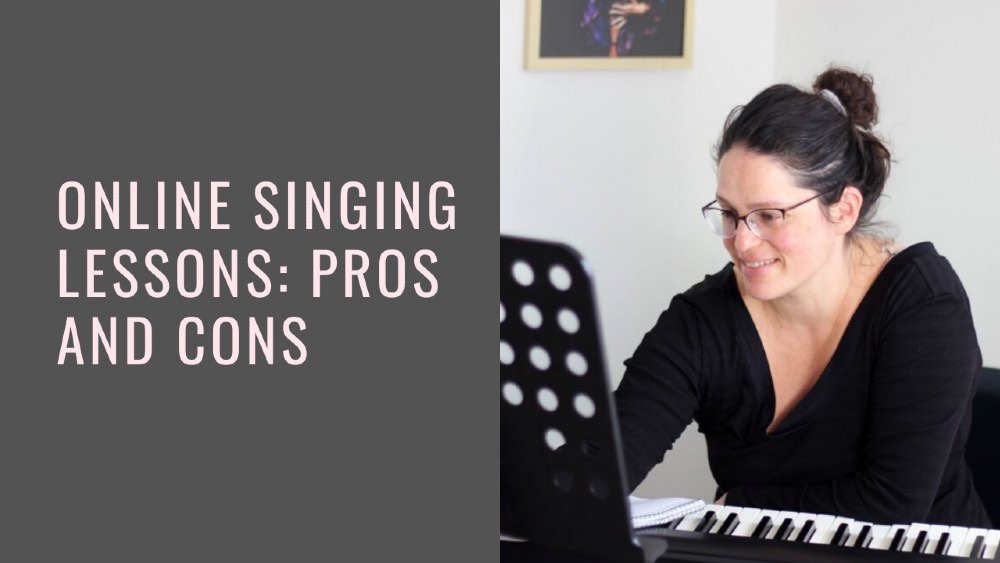
Online singing lessons: the pros and cons
In this article you’ll learn about the advantages and disadvantages of online singing lessons compared to real-life lessons. You'll also get an idea if

Cheap voice lessons – how to spend less money on singing
Voice lessons can feel out of reach when money is tight — but learning to sing doesn’t have to drain your wallet. With the
How often should you take voice lessons?
A common question for beginners is: How often should I take lessons to improve?
Traditionally, students take one lesson per week. It’s enough to practice in between without forgetting what you’ve learned. For beginners, this is usually the minimum for steady progress. Two lessons per week is advisable. Why?
The problem with once a week or less
Especially for rather clueless beginners, the challenge is what happens between lessons. You might practice the wrong way, hit a roadblock with no one to ask, or lose motivation. By the next lesson, you’re either starting over or undoing mistakes.
Many try to save money by taking lessons every two weeks or once a month. While this may be an option for experienced singers, for most, the gaps are too big: you forget, practice less, and spend your lesson time reviewing instead of moving forward. Progress slows, and ironically, you end up paying more for less.
The answer isn’t more traditional lessons — it’s better support between them. With online programs that include group calls, recorded resources, and teacher feedback on demand, you get help exactly when you need it. That’s what really accelerates progress.
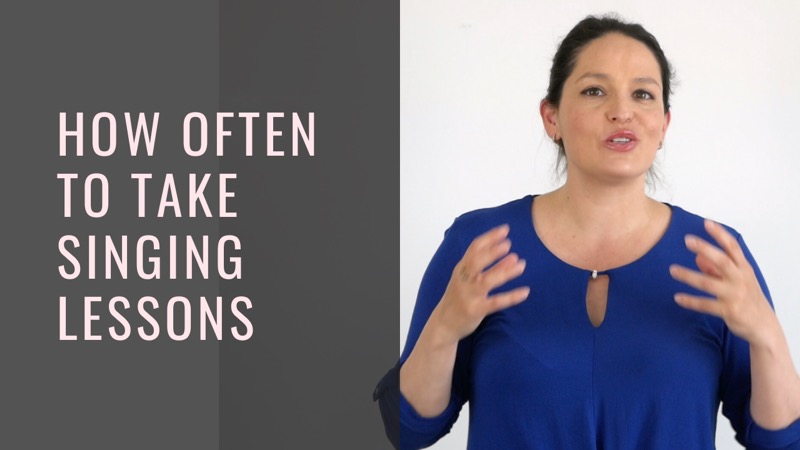
How often to take singing lessons
Singing is like a language, or a mix between a language and a motor skill, if you will. When learning a new language, one
A new model: online groups + asynchronous feedback
All the above is why I created a new approach: a six-month program that achieves in half a year what usually takes two.
It works because:
- Weekly group masterclasses – Learn from each other, get inspired, and practice in a supportive environment.
- The Candy store – Unlimited access to 100+ practice and inspiration videos, tailored to your journey.
- Direct access to me – Send short clips anytime, and I’ll reply with personal video feedback. No more getting stuck between lessons.
This structure solves the biggest problems with traditional singing lessons: lack of joy, lack of structure, and lack of continuity.
Singing teacher online: how to choose the right one?
Not all online vocal coaches are created equal. Just like in-person teachers, some will be a perfect match for your voice and goals, while others might leave you stuck or even frustrated. When choosing a coach online, here are the most important criteria to look for:
Integration of methods and feedback
A strong online coach won’t just give you one-off lessons. Look for someone who combines personal feedback, group learning, and structured online material (videos, practice guides, or exercises you can use between lessons). This mix keeps you progressing even when you’re not in a live session.
Proven online teaching experience
Teaching online requires a different skill set than teaching in a studio. Check whether the coach has experience with online platforms and knows how to adapt exercises, troubleshoot sound issues, and still create a personal connection through the screen.
Education and professional background
While formal music academy training is not the only route, it’s reassuring if your coach has a solid education in voice or is part of a recognized teaching method (for example, CVT, Estill, IVA). Combine that with real-world performance experience — a teacher who has sung on stage understands the challenges of performing.
Empathy and personal journey
The best coaches are not just technically skilled but also empathetic. Many great teachers have faced their own vocal struggles or confidence issues and can truly relate when you hit roadblocks. This kind of experience makes them better guides.
Testimonials that match your situation
Read testimonials of the vocal coach carefully. Are past students similar to you? For example, if you’re a beginner, do you see beginners praising the coach’s patience? If you want to sing pop, do you find feedback from pop singers? Look for detailed, credible testimonials rather than vague praise.
Style match
Different teachers specialize in different genres. If your dream is to sing rock, gospel, or opera, make sure the coach works in that style. A good teacher will highlight their specialties clearly, so you can check whether they align with your goals.
Personal chemistry
Singing is personal and vulnerable. The relationship with your coach should feel safe, encouraging, and aligned with your values. After a trial session or first call, ask yourself: Do I feel comfortable with this teacher? Do they bring out the best in me?
Practical factors
Finally, consider the practical side:
- Scheduling: does the coach’s availability fit your routine?
- Technology: do they use high-quality video and audio tools?
- Pricing: is it sustainable for you long-term?
I teach singing online
Maybe we're a match
Online singing tools & apps: the best options
When singers first look into learning online, the most common entry point is apps and digital tools. There’s an app for everything now: pitch training, karaoke, warmups, even AI-driven vocal feedback. But many singers wonder: Can an app replace a teacher? The short answer is no. But the longer answer is: these tools can be a powerful part of your learning — if you use them in the right way.
What singing apps are good for
Singing apps are best at helping you practice regularly and track your progress. For example, karaoke apps encourage you to sing more songs in a fun, low-pressure way. Pitch-detection apps give you instant feedback on whether you’re in tune. Warmup apps make it easier to start practicing without overthinking what to do. These tools lower the threshold to practicing at home — something every singer struggles with.
Where apps fall short
What apps cannot do is give you context, direction, or tailored feedback. An app might tell you that you’re flat, but not why or how to fix it. Apps can motivate you, but they won’t structure your journey from beginner to confident performer. Left on their own, they often lead to scattered practice and frustration.
How apps work best: as part of a system
This is where integration matters. Apps shine when they’re part of a bigger framework that gives you structure, feedback, and community. For example:
- You use a karaoke app to learn a new song → you share a clip with your teacher → you get targeted feedback.
- You warm up with an app daily → then join a weekly group class to test those skills in performance.
- You practice with a pitch trainer → but you also learn in context why certain notes are harder, and what technique unlocks them.
In other words: apps support the process, but they don’t replace it.
My recommendations
That’s why I’ve written in-depth comparisons of the most popular options:
- Best Singing Apps – Practice tools to keep you consistent.
- Best Karaoke Apps – Fun, motivating ways to build repertoire.
- Best Online Singing Courses – Structured but self-paced options (and how they compare to live programs).
These tools are useful stepping stones. But the real transformation happens when they’re paired with a system like my From Whisper to Roar program, where group classes, personal feedback, and lifetime resources turn scattered practice into continuous growth.
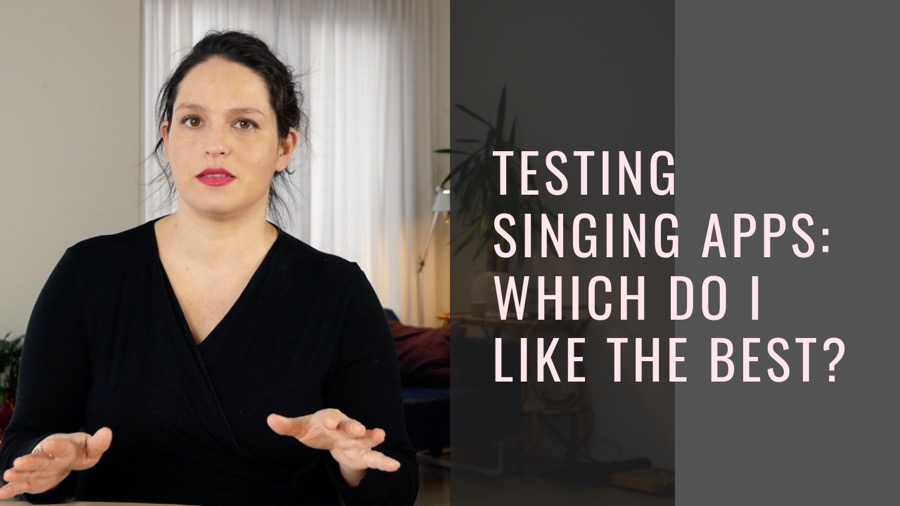
Best singing apps in 2026: get help with warmup, pitch, range
What are great singing apps or: vocal training apps for both iOS and Android? If you’re looking for the best apps to help you
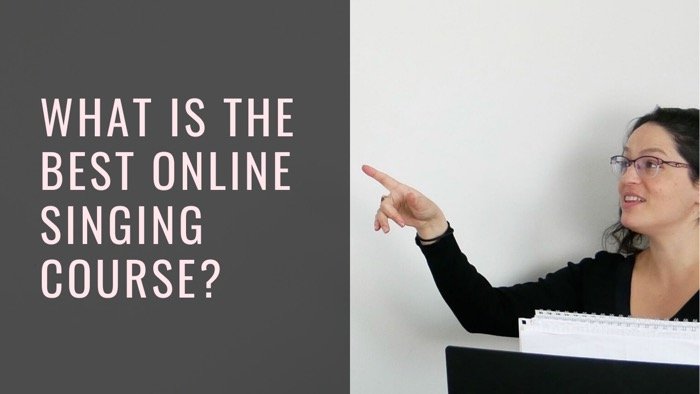
The best online singing courses: a singing teacher’s pick
When you purchase through links on our site, I may earn an affiliate commission. Here’s how it works.What is the best online singing course? I
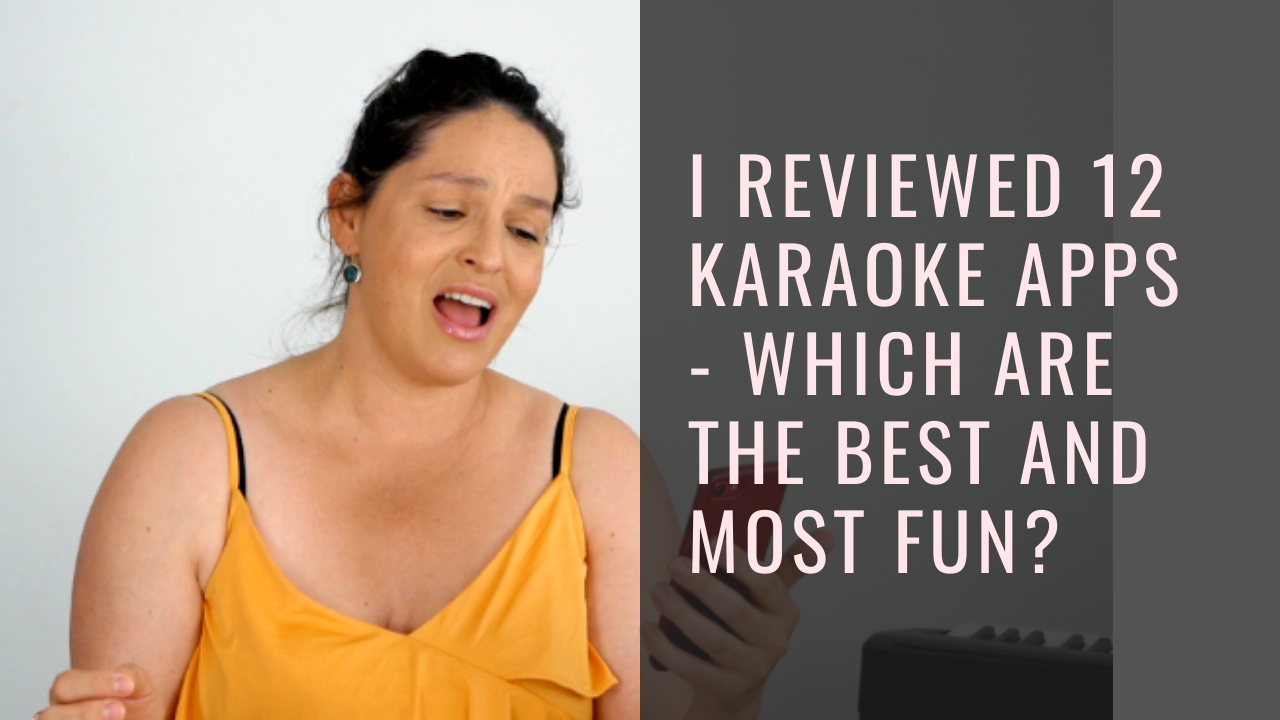
The best karaoke apps, for parties and practice
Being a singer, I find myself often in need of a good singing session. You know, just sing, have fun, like they do in
Putting it all together
Online singing lessons aren’t just a cheaper alternative to in-person lessons: they can be more effective. The key is choosing an approach that combines structure, feedback, and community. Apps can support you, but for true transformation, you need a system that gives you both the joy and the accountability to keep going.
That’s what I’ve built with From Whisper to Roar: a program designed to unlock your true voice, remove the mental blockages, and accelerate your growth in a way traditional lessons can’t.
About the author

I’m Linor Oren, founder of SingWell. I have an opera background and in the past I've performed on stage. I've taught hundreds of students how to find their authentic voice. What I’ve learned is that singing isn’t about being “born with it” — it’s about unlocking what’s already inside you with the right tools and guidance. My passion is helping singers at every level grow in confidence, technique, and joy, so they can sing with freedom and expression.
Take your wish to sing seriously: get more tools to become a better singer in your inbox
Eye-openers, tips and stories. Also content that I don't publish on my website.
